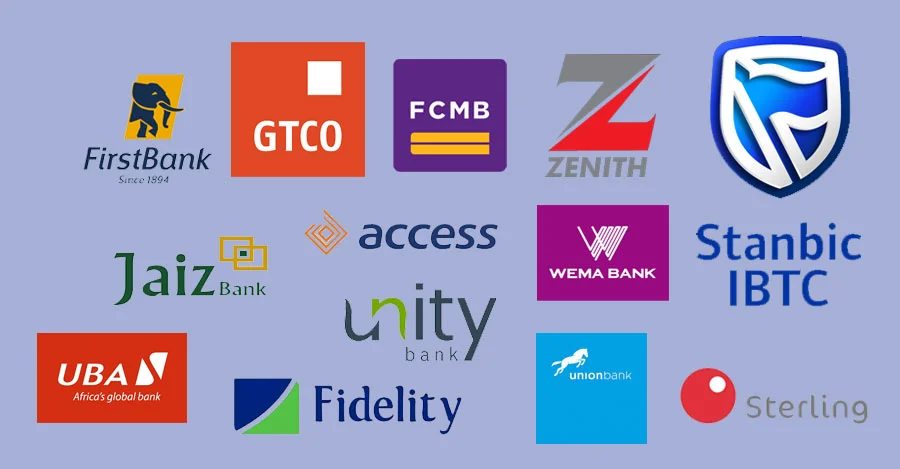In 2024, Nigeria’s top financial institutions thrived in a turbulent but lucrative economic climate. Nine publicly listed banks—Access Holdings, FCMB, Fidelity, First Holdco, GTCO, Stanbic IBTC, UBA, Wema Bank, and Zenith—collectively posted a post-tax profit of ₦4.786 trillion. This figure marked a robust 53.34% increase compared to the ₦3.121 trillion reported in 2023.
However, beyond the surface-level profitability, a deeper analysis of the banks’ Value-Added Statements (VAS)—a less emphasized but revealing section of their financial disclosures—paints a more nuanced picture. These statements showed that total wealth generated by the banks soared to ₦8.871 trillion, reflecting a sharp 66.3% rise from ₦5.335 trillion the year before.
The VAS framework details how this wealth was distributed among various stakeholders, including government authorities, employees, lenders, shareholders, and retained earnings earmarked for future reinvestment.
Government Collects More Than Shareholders
While shareholders received healthy dividends, the federal government emerged as the largest external recipient of banking sector wealth in 2024. Not all banks reported dividends within their VAS, but a review of full financial statements indicated the government collected a record ₦1.166 trillion in taxes—a massive 111.4% increase over the previous year. Shareholders, on the other hand, received ₦951.4 billion in total dividends, which, despite being up by 87% from 2023, still trailed the government’s tax haul by over ₦200 billion.
A closer examination reveals significant variance in how each bank distributed its generated value:
Zenith Bank: Top Performer, Heaviest Taxpayer
Zenith Bank emerged as the most profitable institution, reporting ₦1.032 trillion in net profit. The bank created ₦1.583 trillion in total value and allocated ₦294 billion to government coffers—more than any other peer, and a 147% increase from the previous year.
While shareholders received ₦196.676 billion in combined interim and final dividends, the lion’s share of the wealth—₦1.085 trillion—was retained by the bank to support future expansion and reserves.
GTCO: High Earnings, High Tax Contributions
GTCO followed closely with a net profit of ₦1.018 trillion and ₦1.410 trillion in total value generated. The bank paid ₦248.443 billion in taxes, a steep 257% jump from 2023, while dividends to shareholders stood at ₦236.332 billion—less than the government’s share, continuing the trend of public sector prioritization.
Access Holdings: Leading in Wealth Creation
Access Holdings led the pack in total value generated, posting ₦1.622 trillion, a 48% leap from the prior year, alongside ₦642.216 billion in post-tax profit. From this, the government received ₦224.802 billion (14%), while providers of finance took ₦261 billion (16%). Despite a 68% year-on-year increase, dividends paid to shareholders totaled only ₦125.299 billion—still significantly behind what the state collected.
First Holdco: Soaring Tax Payments, Low Shareholder Rewards
First Holdco recorded ₦1.593 trillion in value creation, nearly twice what it produced in 2023, and posted a ₦663.490 billion net profit. The state took ₦132.977 billion, up 179% from the previous year. Employees received ₦308.5 billion, while shareholders saw a modest ₦25.127 billion in dividends—five times less than what went to the government.
Fidelity Bank: Massive Tax Jump
Fidelity Bank’s net earnings surged to ₦278.106 billion, a 179% rise from 2023. The bank generated ₦508.743 billion in total value, with ₦95.454 billion (18.76%) going to the government—a staggering leap from ₦4.170 billion a year earlier. Shareholders received ₦89.965 billion in return, a 231% year-on-year increase but still shy of what went into public coffers.
Stanbic IBTC: Employees First, Shareholders Last
Stanbic IBTC created ₦408.586 billion in value and contributed ₦78.485 billion in taxes to the government, a 143% rise. Employees received the largest portion at ₦86.681 billion (21%), while shareholders received the least—₦64.758 billion—suggesting a more employee-focused distribution model.
FCMB: Modest Profits, Uneven Distribution
FCMB’s after-tax profit fell by 21% to ₦73.337 billion. However, value-added output rose to ₦205.074 billion, up 24% year-on-year. The government claimed ₦38.558 billion (18.8%), whereas shareholders got ₦21.783 billion—a 120% increase from 2023, yet still markedly less than the state’s share.
UBA: Shareholders Gained More than the Government
UBA posted a ₦766.568 billion profit and created ₦1.384 trillion in value—up 23% from the year before. Uniquely, the bank allocated a whopping ₦1.032 trillion (75%) to business reinvestment and retained earnings. Shareholders received ₦170.997 billion, significantly more than the ₦37.158 billion paid in taxes—one of the few examples where equity investors gained more than the government.
Wema Bank: Shareholders Came Out Ahead
Wema Bank enjoyed a 139.74% jump in net profit, reaching ₦86.280 billion, while its total value added soared to ₦156.718 billion. Taxes totaled ₦16.235 billion (10.36% of value added), up 111.5%. However, dividends to shareholders hit ₦21.430 billion—surpassing the government’s take, which placed Wema among a small group of banks that favored investors over the taxman.
Summary: Public Sector Emerges as Primary Beneficiary
In total, banks disbursed ₦951 billion in dividends in 2024, an impressive 87% increase year-on-year. However, with tax revenues from the banking sector surging to ₦1.166 trillion—a 111.39% increase—the government remained the biggest winner.
This outcome underscores a clear shift in the balance of value distribution within Nigeria’s financial sector. While shareholders have seen growing returns, the government’s earnings from tax revenues have outpaced them, signaling a notable trend where public coffers increasingly benefit from the banking industry’s strong performance.



